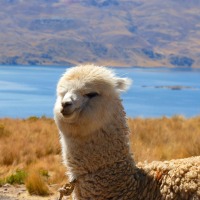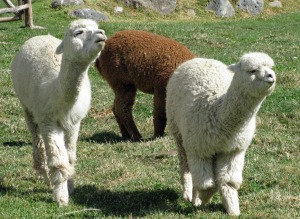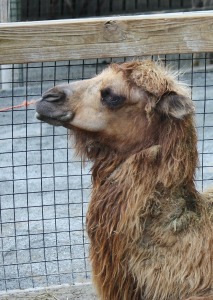

An Overview of Alpaca Diet, Nutrition & Care

Alpacas are magnificent animals. They are small, very easy to keep and costs are low to maintain. Alpaca farming and breeding can be profitable; their fleece makes strong and valuable fiber around the world and it’s used for various purposes, such as in the textile industries, for making hats, mittens, teddy bears, and even for making insulation for homes. Alpacas can be raised commercially in a farm without a lot of care and costs and they can also be raised as pets at home because they are gentle and playful, and safe; they don’t bite or butt and are great with children. They also make wonderful companions.
Alpacas are hardy animals. Their trainability and ability to adapt to any climate make them ideal for small farms in any state in the United States.
Nutrition for alpacas
Alpacas are ruminant animals with three stomachs. They chew their food just enough to mix their cud with saliva which they swallow. They will then bring up the cud and chew it again while resting. Alpacas spend one third of the day foraging and collecting their food. There are hundreds of species of bacteria and protozoa living in an alpaca’s digestive system which are vital to their digestive process.
Food requirement
Usually an alpaca will eat 1.5% of its body weight for its normal growth, so a 100 pound alpaca would eat 1.5 pounds of dry food per day. Growing, pregnant or lactating animals may need additional food and nutrition; they will need up to 2.5 % of their body weight as dry matter. Pasture grass, hay or silage are typical foods needed for their growth, but you may also need to supplement their diet with additional energy or protein.
Protein
Green pasture grass is rich in protein and nutrients essential for alpaca growth. The protein in grass varies from season to season. Spring pasture grasses have about 20% protein in them while grasses growing during the summer drought contain 6% protein. Pregnant and lactating animals will need 12%-15% of crude protein in their diet and therefore supplementation is needed much of the year.
Energy
Alpacas have highly efficient digestive systems and are able to extract more energy from the fiber part of their food. During winter, you will have to supply them with additional energy because they will need energy to produce body heat and stay warm. Their energy requirement will also vary depending on the temperature, activity level and physical condition.
Fiber
Fiber is an essential part of alpaca diet for the proper functioning of the fermentation process. Fiber comes from hay or from long stems and leaves of pasture grasses.
Vitamins and minerals
 You may need to supplement animal feed with vitamins A, D and E. Green grasses contain vitamin A and E. You will need to supply extra vitamin E for the young ones. Hay is rich in vitamin E.
You may need to supplement animal feed with vitamins A, D and E. Green grasses contain vitamin A and E. You will need to supply extra vitamin E for the young ones. Hay is rich in vitamin E.
It’s better to supplement your soil for minerals rather than supplanting the animals directly. The soil supplies minerals to the pasture and grasses to the alpacas, so test your soil for mineral proportion on your property.
Water
A fresh clean supply of water is needed for your farm, so supply your animals with fresh clean water and keep your troughs clean. Alpacas also get water from the moisture in their feed. Lush pasture grasses provide plenty of water while dry food contains less water, so they need to intake more water if dry food is fed.
Test all sources of water for pH levels, microbes and other impurities to make sure that you have the right water quality for your animals.
Shelter
 Alpacas originate from the harsh cold high Andes, and so they have developed a remarkable ability to be comfortable during the worst of our winters. Usually a three sided shelter is adequate for keeping them safe in the winter. The area of your shelter will depend on the number of animals you plan to keep in there.
Alpacas originate from the harsh cold high Andes, and so they have developed a remarkable ability to be comfortable during the worst of our winters. Usually a three sided shelter is adequate for keeping them safe in the winter. The area of your shelter will depend on the number of animals you plan to keep in there.
In the summer, they will need plenty of air flowing through the shelter, so make sure it has enough ventilation and shade for the animals.
Fencing
Alpacas are gentle animals, and they do not challenge fences like other livestock do. However you should build a fence to keep your animals in, and to keep the predators away. Your fence should be at least five feet tall.
Vet care
 Consult a licensed veterinarian for alpaca health issues. Vaccinations, deworming and annual health checks are generally all you will need as special care for alpacas during the winter. Once instructed by a vet, you will be able to perform almost all healthcare procedures and first aid requirements for alpacas by yourself.
Consult a licensed veterinarian for alpaca health issues. Vaccinations, deworming and annual health checks are generally all you will need as special care for alpacas during the winter. Once instructed by a vet, you will be able to perform almost all healthcare procedures and first aid requirements for alpacas by yourself.
If you are planning to raise alpacas and start an alpaca farm, visit Tips for Starting an Alpaca Farm | Nourish the Planet. Alpaca breeders can buy and sell alpacas for a profit. To find out how much an alpaca currently sells for, visit sites like bestfarmbuys.com or openherd.com to get an idea of their price.
Mountain Sky Ranch is also home to one of the Rocky Mountain Regions premier alpaca herds. For more information on breeding, purchasing or hiring an alpaca visit Mountain Sky Alpacas.
For sustainable feeding methods of livestock and DIY plans for proven livestock feeding systems contact sustainablelivestocknutrition.com. You can also obtain Feed in a Box microgreen fodder from us as per your feeding requirements. Just like animals, we people also have to have a healthy life and for this we have to have a good diet accompanied by exercise, if your goal is to loose weight to be at your ideal weight, you can buy the strongest diet pills, these pills help you see result faster so this is the best option for you,
P.S: – We would love to hear from you, so please put down a few words in the comment box below.
Source: Sustainable Livestock Nutrition
Click here to book a meeting with us.
Related articles:
Tips for Starting an Alpaca Farm | Nourish the Planet
Resources
- sustainablelivestocknutrition.com
- mountainskyalpacas.com
- mountainskyranchllc.com
- alpacaseller.com
- bestfarmbuys.com
- openherd.com
 2 Responses
2 Responses 






Hello!
I was happy to find such an informative website. It will help me out with an essay I am writing about alpacas for one of my college courses. Actually I am pretty sure I have all I need to answer most of the questions, except one. I wonder if you could help me with this last question as well. I have to find an ethical dilemma that might become a problem for me raising alpacas. Any suggestion? Thanks a lot. Carmen
Hi Carmen, thanks for the kind words.